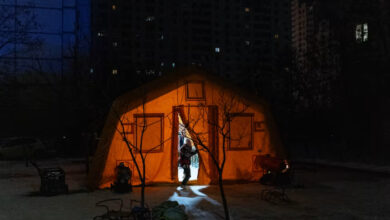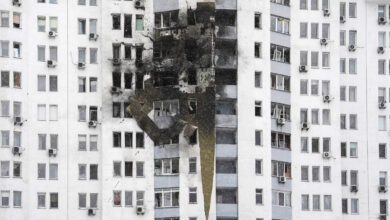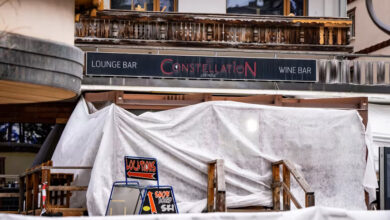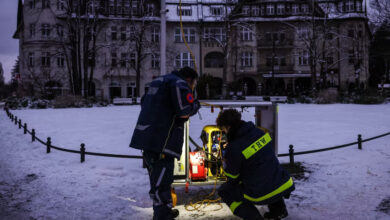
Paris' world-famous Louvre and Musee d'Orsay museums shut on Friday to rush valuable artworks out of their basements, as the rain-swollen River Seine reached its highest level in three decades.
At least 14 people have been killed in floods that have wrought havoc in Europe after days of torrential rain, trapping people in their homes and forcing rescuers to row lifeboats down streets turned into rivers.
Parisians were urged to stay away from the Seine, which has spilled its banks in places and was expected to reach a peak of six metres (19.5 feet) Friday.
A man on horseback died Thursday after he was swept away by a swollen river in Evry-Gregy-sur-Yerre, southeast of Paris.
Ten people have been killed in Germany and two in Romania, while a bee-keeper died in Belgium while trying to protect his hives from the floods, local authorities in the Nassogne region said.
French Environment Minister Segolene Royal said she feared more bodies would be found as waters recede in villages in central France, some of which have suffered their worst floods in a century.
In Paris, officials have erected emergency flood barriers along the Seine, whose banks are home to both the Louvre — the world's most visited museum, with attractions including the Mona Lisa — and the Musee d'Orsay.
The riverbanks are normally thronging with tourists in what is supposed to be the start of summer, but visitors were walking away disappointed.
"We were going to go the Louvre today, and we were going to go on the boat cruise for dinner tonight — and they were both cancelled," said American tourist Elle Yarborough, an English teacher from Boston.
"It's too bad, but we're still happy to be in Paris."
Museums prepare for the worst
The downpours add to a gloomy atmosphere in France just a week before the country hosts the Euro 2016 football championships, with workers facing more train strikes Friday after months of protests and political turmoil.
Both the Louvre and Musee d'Orsay, which see a combined 12.5 million visitors a year, closed their doors Friday so that artworks could be brought out of their basement archives to higher floors.
While the river's swelling has so far caused little damage in Paris and is unlikely to submerge the city centre, residents living near the Seine were urged to clear their basements.
Boat traffic has been banned in the capital, and a regional train line that runs along the Seine has been suspended.
More than 20,000 people have been evacuated in France since the weekend and around 19,000 homes are without power.
Rescuers in the Parisian suburb of Longjumeau paddled up streets in lifeboats Thursday, while in the town of Montargis, only the tops of cars could be seen peeking above the surface.
French President Francois Hollande said a state of "natural catastrophe" would be declared when the cabinet meets next Wednesday, a necessary step to trigger compensation payments.
German devastation
Several towns in southern Germany have been devastated by flooding.
In Simbach am Inn, the force of the water swept away the entire stock of a sawmill, leaving huge stacks of splintered wood blocking roads.
On one street, a car could be seen parked vertically against the wall of a house, pushed there by the floodwaters. Many other vehicles lay flipped over on roads blanketed by mud.
Six people have been killed in the Simbach area, including three women from the same family — a mother, grandmother and daughter — who had been trapped in their house.
"The [rise in] water was so quick that practically no residents had the time to run away," police spokesman Armin Angloher said.
Four people were killed earlier this week in the southern German region of Baden-Wuerttemberg, while three others are missing, a police spokesman in Bavaria state said.
German Chancellor Angela Merkel said her thoughts were with the families "who have been plunged into this devastation".




